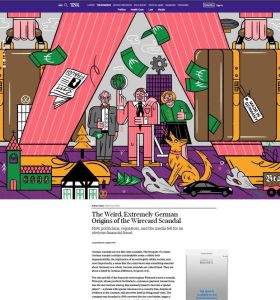Join getAbstract to access the summary!

Join getAbstract to access the summary!
Adrian Daub
The Weird, Extremely German Origins of the Wirecard Scandal
How politicians, regulators, and the media fell for an obvious financial fraud
New Republic, 2021
What's inside?
The Wirecard scam reveals much about the German economic psyche.
Recommendation
Is Germany a true economic tour de force? Or does the complex interrelationship between industry and politics – which touts the German Wirtschaftswunder while a code of silence mutes its failures – make it a tour de farce? In explaining Wirecard’s seemingly inexorable rise and ultimately predictable fall, professor Adrian Daub deftly examines how German national and commercial pride, beneath a veil of parochialism, perpetuated an ongoing blindness to the Wirecard imbroglio.
Summary
About the Author
Adrian Daub is a professor of German studies and comparative literature at Stanford University.


















Comment on this summary